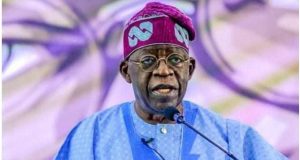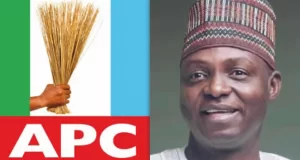 The All Progressives Congress, APC, in Oyo State has asked the police and other security agencies to probe the role of Governor Oluseyi Makinde before, during and after the governorship polls in Kogi State.
The All Progressives Congress, APC, in Oyo State has asked the police and other security agencies to probe the role of Governor Oluseyi Makinde before, during and after the governorship polls in Kogi State.
Seyi Makinde had temporarily relocated to Kogi few days to the November 16 until Sunday.
The APC, in a statement by its Assistant Publicity Secretary, Mr. Ayobami Adejumo revealed that they are “seriously worried” about the cases of violence reported in some parts of Kogi.
The party had this to say after the election, “Especially as this connects the incumbent governor of our dear Oyo State, who should also be investigated by the Economic and Financial Crimes Commission on account of the government money spent on the ill-fated project.”
“We stand to condemn every act of violence, incitement and vote-buying which might have been recorded. The fact remains that no life of any individual is worth the votes being sought at polls by politicians.
“The Oyo State governor’s clandestine hatchet job in Kogi was blown few hours to the polls when a team of security agents had to burst into a hide-out where some disgruntled elements had gathered to plan evil ahead of the elections.”
Abayomi added that Seyi Makinde’s political history is not particularly clean.
He continued, “The same governor commissioned his media handlers he deliberately left in Ibadan to twist the story and thus mislead the public.”
“Without mincing words, keen watchers have come to realise that Makinde’s political history cannot be said to be free from damning evidence of violence sponsorship, financial inducements and propaganda.”
Do you see sense in this?
The All Progressives Congress (APC) is a political party in Nigeria, formed on 6 February 2013 in anticipation of the 2015 elections. APC candidate Muhammadu Buhari won the presidential election by almost 2.6 million votes. Incumbent President Goodluck Jonathan conceded defeat on 31 March. This was the first time in Nigeria’s political history that an opposition political party unseated a governing party in a general election and one in which power transferred peacefully from one political party to another. In addition, the APC won the majority of seats in the Senate and the House of Representatives in the 2015 elections, though it fell shy of winning a super-majority to override the ability of the opposition People’s Democratic Party to block legislation.
Formed in February 2013, the party is the result of a merger of Nigeria’s three biggest opposition parties – the Action Congress of Nigeria (ACN), the Congress for Progressive Change (CPC), the All Nigeria Peoples Party (ANPP), a faction of the All Progressives Grand Alliance (APGA) and the new PDP – a faction of then ruling People’s Democratic Party. The resolution was signed by Tom Ikimi, who represented the ACN; Senator Annie Okonkwo on behalf of the APGA; Ibrahim Shekarau, the Chairman of ANPP’s Merger Committee; and Garba Shehu, the Chairman of CPC’s Merger Committee. Ironically, less than 2 years before the party’s historic victory in the 2015 elections, Messrs. Annie Okonkwo, Tom Ikimi and Ibrahim Shekarau resigned from the party and joined the PDP.
The APC is generally considered to be a centre-left political party that favors controlled market economic policies, and a strong and active role for government regulation. A substantial number of its political leaders are followers of or politicians who subscribe to the social democratic political philosophy of Obafemi Awolowo and the socialist and anti-class views of Aminu Kano. Moreover, the majority of the APC’s base of political support is in southwestern Nigeria and Northern Nigeria, which are dominated by the country’s largest ethnic groups, the Yoruba and the Hausa-Fulani, respectively.
The APC support state’s rights, advancing state police as part of its manifesto. Its social policy is a combination of social nationalism. Despite the parties’ domination by pro-devolution politicians like Atiku Abubakar, Bola Tinubu and Chief Bisi Akande, the party’s presidential bearer and the CPC wing is less inclined to federalism.
 NaijaVibe NaijaVibe | Download Latest Nigerian Music & Mp3s
NaijaVibe NaijaVibe | Download Latest Nigerian Music & Mp3s



